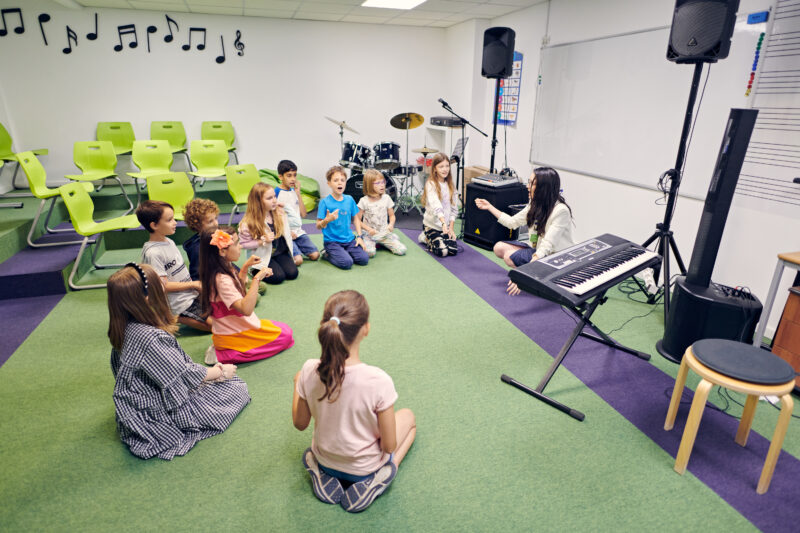At Verita International School, we cultivate joy, through teaching arts and music.
Arts
VIS offers Visual Arts as part of the curriculum, for all age levels. Art encompasses all the developmental domains in child development, therefore teaching art in school is of great importance. Being creative is a useful skill in any field, not only in art and as Picasso said, all children are naturally artistic and creative. Through Visual Art, children explore their creativity and learn different fun games that help them stay creative with time.
In art class, students find a new way of expressing themselves by learning a language that doesn’t require words. They learn that such things as mistakes do not exist in art, each accident on the canvas can be a good starting point for a new project. They also learn an important truth: to make a mark on canvas is to open the door of possibility to be moved profoundly and to move others. That is what art is all about.


Art class combines creative thinking and improving observational representation through different themes or games. Students are encouraged to communicate personal experiences, thoughts, feelings, observation or records of people, places or things in their artwork.
Learning about artists and their work is also an important aspect that help students enrich their knowledge.
Visual Arts program offered by VIS focuses on teaching kids the basic art language and helping them improve their artistic skills. The art content covered is delivered through projects that link to the IPC and IMYC units.
VIS offers IGCSE for Art and Design starting Year 10. This program aims to encourage personal response, stimulate conceptual thinking, creativity and also observational representation. The program focuses al well on developing a greater awareness of the role played by artist and art in society and history.


Every child is an artist. The problem is how to remain an artist once we grow up.
Pablo Picasso


Music
Our Music program cultivates joy in creating and listening to music as well as serves to foster a working knowledge of music theory. At Verita International School, students learn music as if it were a separate language, aiming to develop creativity and artistic expression, as well as cultivating musical literacy. In the first few years of study, music is introduced following the learning steps that facilitate language development for a native speaker, including listening, memory, imitation and performance, just as a child would “pick up” on their native language.

Through the implementation of the IPC and IMYC curricula, all disciplines and subjects studied in school blend and connect in order to corroborate a strong academic foundation with multidimensional focuses, covering rational, emotional, social and practical applicability. Which is why, without excluding a possibility that a graduate might consider a career in music, our aim is not to create professional musical virtuosos, but to add to the academic foundation yet another perspective that engages and enhances the creative right hemisphere of the brain.
By the time they graduate, students do experience music in a balanced learning approach, and they develop music reading skills, a general understanding of and the ability to play a musical instrument, natural intuitive rhythm, as well as a vast repertoire of music from all genres and times.
Verita also offers private piano, guitar and drums lessons and after school workshops.
We, at Verita, believe that a strong sense of community with an emphasis on the arts and music, sports and a social curriculum reinforces our rigorous academic goals.
Ready to send your child on
the learning adventure of a lifetime?
We develop your child’s talents, build friendly relationships in a safe environment, and make learning enjoyable. Verita is the best fit for you if you believe that your children are part of a generation that needs to be independent, creative and ready for a changing world.

